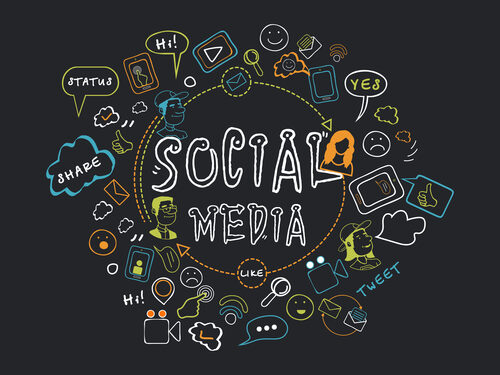

As a self-proclaimed social media consultant and expert, I am always amazed at the misunderstanding of social media in the C-Suite world. These highly intelligent, and might I add highly paid individuals, seem to be looking at social media through one prism equation:
(Time + Money) x Social Media = Increased Sales
While we all want this equation to work, it is as irrelevant as comparing outdoor advertising to a Pinterest bulletin board. Apples to oranges. Typewriters to tablets. You get the idea.
Now, don't get me wrong, measurement tools are good things, and they can show some effectiveness of your message. However, hospitality marketing gurus and their bosses above them want to push out everything they want you to know about their property and then some. Push, push, push until the poor fan who is on your page unfriends you or worse, blocks your messaging. Just like interacting at a cocktail party, we need to listen as much as we talk on social media and stop focusing on ROI but use much gentler, kinder measurements such as ROE (Return on Engagement) or ROC (Return on Conversation).
Let's look at three things you can do to position your business’ online marketing efforts.
First, your organization has to have goals and objectives.
What does your organization want to accomplish with its social media strategy? It is a-okay if increasing sales is one of the goals, but it can't be the ONLY goal. Think of it this way: The goals consist of your blueprint, the objectives are your building materials, and social media are the items in your tool bag. You can't pound a nail into a 2' x 4' with a tape measure. So don't spend all your time on Facebook if your prospects are on LinkedIn. Goals might look something like this:
- Increase brand awareness gaining more likes and followers
- Write a blog twice a week dedicated to issues in the industry
- Develop a digital crisis plan for customer complaints online
- Use social media exclusively for career openings
The goals should have a mixture of financial and non-financial objectives.
Second, it’s not all about you; it's mostly about them.
It would help if you had a mixture of "push" (your hotel, your specials, your promotions) and "pull" (contents, giveaways, questions, valuable information that is not brand focused, job openings). The rule of thumb is 70/30 -- 70% pull and 30% push. You want your following to be downright giddy about what you are going to giveaway, offer, post, or share!
Moreover, don't even try to control the comments because a disgruntled customer will find a way to get their message out virally. Instead, respond to their complaint online and on time. Show you care and let the rest of the world know you care, too.
Third, get everyone on board, from the housekeeper to the general manager.
Stop thinking that marketing is responsible for your online marketing messaging (typewriter aka old school). Start believing that everyone is responsible for the conversation (tablet aka hipster). Train your staff on the tools, and even though they might not participate in the discussion, they will know when you have one upset customer. Make it easy for them to respond to the guest, both face-to-face and online. Empower your staff with the right tools, and you will never regret it.
So here's my new equation:
(Time + Money) x Social Media = Brand Awareness +
Business Development + Marketing Initiatives + Crisis Management
+ Increased Sales




